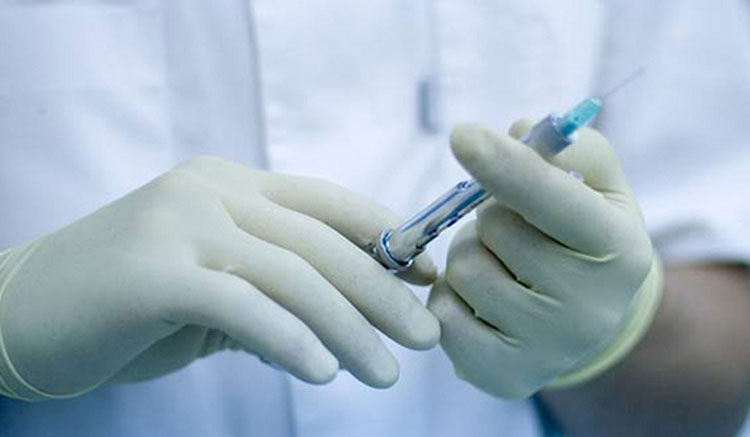Swine Flu Vaccine Safe for Pregnant Women & Babies

Babies born to women who received the H1N1 (swine) flu vaccine while pregnant are not at increased risk for birth defects or other adverse outcomes, according to a new study from Denmark.
The findings add to the evidence that annual flu vaccines, including those used during pandemics, are safe for pregnant women and their babies, said Dr. William Schaffner, chairman of the department of preventive medicine at Vanderbilt University, who was not involved in the study.
The Centers for Disease Control and Prevention strongly recommends flu vaccines for pregnant women because pregnancy increases the risk of becoming severely ill from the flu.
To be sure, there was reasonable evidence showing that the H1N1 flu vaccine was safe for pregnant women before it was administered in 2009, Schaffner said. However, the pandemic threat meant there was no time to conduct a detailed study of the vaccine's effects on pregnant women. In addition, because of the H1N1 shot was new, some were concerned over the vaccine's safety, Schaffner said.
In the new study, the researchers analyzed information from about 53,000 women who were pregnant during the period of H1N1 vaccination in Denmark (between November 2009 and September 2010). Of these, about 13 percent, or close to 7,000 women, received the H1N1 vaccine.
The researchers compared the babies of vaccinated women with babies of unvaccinated women, taking into account number of characteristics, including their mother's age, smoking status and prepregnancy birth weight.
Babies born to women who received the vaccine were no more likely to be born preterm, or have major birth defects or growth restrictions, compared with babies of unvaccinated women, the researchers said.
Sign up for the Live Science daily newsletter now
Get the world’s most fascinating discoveries delivered straight to your inbox.
While the study is not a complete evaluation of all possible effects of vaccination during pregnancy, "Our results are certainly reassuring to pregnant women and medical professionals," said study researcher Anders Hviid, of the State Serum Institute in Copenhagen.
The researchers noted that only a small percentage of women were vaccinated during the first trimester, and that these women had a small increase in risk of pregnancy complications. However, this increase could have been due to chance or other factors, the study showed. More research is needed to confirm the safety of H1N1 vaccination in the first trimester, the researchers said.
The 2009 H1N1 vaccine given in Denmark contained an adjuvant — a substance added to the vaccine to boost the body's immune response to the vaccine. The H1N1 vaccine given in the United States was slightly different in that it did not contain this adjuvant, but previous studies have suggested the U.S. vaccine is safe for pregnant women as well, the researcher said.
The study is will be published July 11 in the Journal of the American Medical Association.
Another study, published in the same journal, showed that the H1N1 vaccine was associated with a small but significant risk of developing a rare nervous disorder called Guillain–Barré syndrome. The researchers of that study concluded that the benefits of the vaccine still outweighed the risks.
Pass it on: Flu vaccines are safe for pregnant women and their babies, a growing body of evidence shows.
Follow Rachael Rettner on Twitter @RachaelRettner, or MyHealthNewsDaily @MyHealth_MHND. We're also on Facebook & Google+.

Rachael is a Live Science contributor, and was a former channel editor and senior writer for Live Science between 2010 and 2022. She has a master's degree in journalism from New York University's Science, Health and Environmental Reporting Program. She also holds a B.S. in molecular biology and an M.S. in biology from the University of California, San Diego. Her work has appeared in Scienceline, The Washington Post and Scientific American.
Man gets sperm-making stem cell transplant in first-of-its-kind procedure
'Love hormone' oxytocin can pause pregnancy, animal study finds










